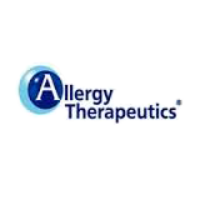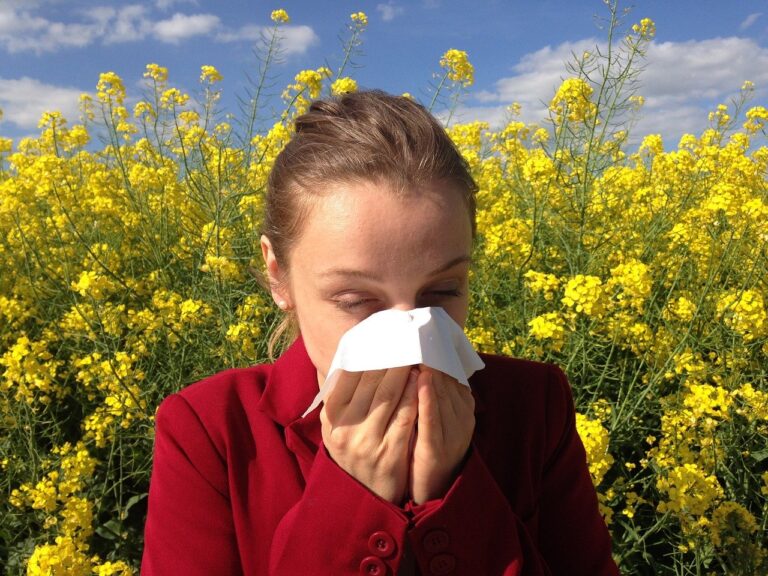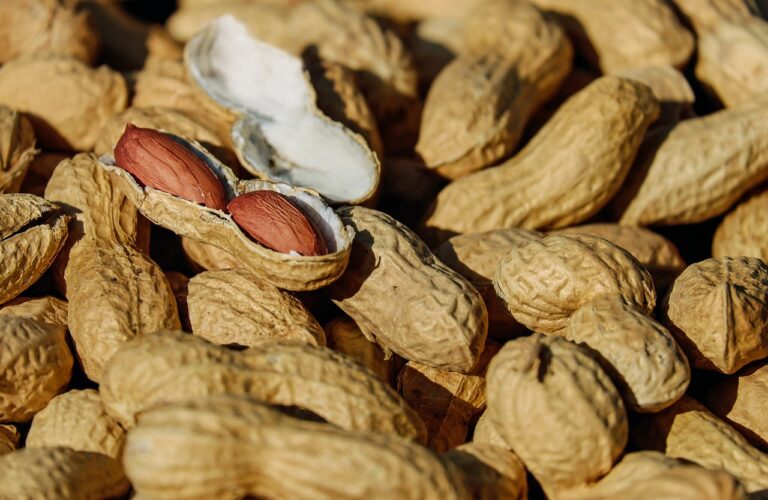Allergy Therapeutics plc (LON: AGY), the fully integrated specialty pharmaceutical company specialising in allergy vaccines, today announced its preliminary results for the year ended 30th June 2019.
Highlights
Financial Highlights
· 8% revenue growth (both reported and constant rate1) to £73.7m (2018: £68.3m)
· 22% increase in pre-R&D operating profit to £11.3m (2018: £9.3m) as a result of sales growth and lower overhead cost growth
· Strong cash balance of £27.4m at 30 June 2019 (2018: £15.5m)
· Net profit of £3.5m for the year including Inflamax settlement of £6m (2018: Net loss of £7.5m)
Operating Highlights
· Good growth across key countries and products with 0.5point increase in market share2 in European business to 14.1% (2018:13.6%)
· Scale up of VLP-based (virus like particle) Peanut product going well following encouraging initial discussions with regulatory authorities; Phase I trial due to commence next year
· Successful Modified House Dust Mite Phase I safety trial
· Primary endpoint of Birch MATA MPL Phase III trial not met but learnings being applied to clinical field-trial planning
· Successful completion of legal action resulting in £6m settlement with costs recovered in 2020
Manuel Llobet, Chief Executive Officer of Allergy Therapeutics, commented:
Allergy Therapeutics has traded well in 2019 with good sales growth, cost control and the favourable settlement of legal action delivering profitability for the year. Clinically, the unexpected failure of the Birch trial has been a disappointment, but we have learned from this outcome and will apply the lessons to our future clinical field-trials including the Grass MATA MPL Phase III trial. We are looking forward to the first in human peanut trial in the summer of next year. With our strong cash position, successful core products and exciting R&D pipeline, we look forward to the future with confidence.”
1Constant currency uses prior year weighted average exchange rates to translate current year foreign currency denominated revenue to give a year on year comparison excluding the effects of foreign exchange movements.
2Market data and internal estimates for 12 months to 30 June 2019 for Allergy Therapeutics’ direct sales competitive markets excluding UK and Switzerland due to lack of competitor information.
Chairman’s Statement
Commercial performance
Commercial performance this year has been strong with growth in sales and further gains in market share in an increasingly tough regulatory environment. It is encouraging to see growth across many areas of the business, including a significant increase in pre-R&D operating profit as well as a net profit for the year.
Clinical performance
This year’s clinical performance was affected by the results of the pivotal Phase III Birch trial. Whilst missing the primary endpoint was unexpected, we have learned valuable lessons from the trial that will be applied in the next clinical field-trial. Notably, however, we had a successful outcome of our modified House Dust Mite MATA Phase I trial and the commercial scale up of the Virus Like Particle (VLP) -based Peanut product is progressing well. In the next 12 months, we expect to begin the first in-human trial of the Peanut product. VLP is an exciting technology platform that offers great potential in many other allergy areas and we look forward to its clinical development.
In June 2019, litigation concluded in our favour against a Clinical Research Organisation (CRO), Inflamax, relating to the poorly-run Phase II Grass MATA MPL trial that took place in the US in 2015-16. Compensation of £6m has been agreed and , although no agreement in respect of legal costs was reached at the balance sheet date, a cost reimbursement of £3.2m has been received and will be recognised in 2020. This was an important result for the Group. We have always had full confidence in the Grass MATA MPL product and it is good to have this matter resolved.
Board
The Board is committed to maintaining and developing effective corporate governance processes.
Following a review of the Board succession plans, we strengthened the Board with the appointment of Mary Tavener as a Non-Executive Director. It is intended that Mary will succeed Stephen Smith as Chairman of the Audit Committee, following the release of this year’s Annual Results. Mary brings with her an impressive breadth of executive experience at AIM listed businesses and her perspective will be invaluable.
Looking Ahead
The Board and management continue to focus on growing our current business through the delivery of patient-focused, short-course injectable treatments while developing a pipeline of next-generation allergy immunology products. Initial sales for the year look strong and we have much to look forward to in the mid-term with opportunities for the Grass MATA MPL product in the US and the development of the VLP platform.
The Group recognises that there will be increasing regulatory requirements in the allergy sector presenting both challenges and opportunities in the short and mid-term.
On behalf of the Board, I would like to thank all the employees of Allergy Therapeutics for their commitment, creativity and teamwork.
CEO Report
This year’s performance has shown yet again that Allergy Therapeutics’ focus on scientifically advanced products that are convenient for patients is the right approach for our business. Net sales grew by 8% to £73.7m (2018 £68.3m) in constant and actual terms, in a market where grass pollen incidence dipped due to the very high temperatures at the end of last summer. The Group continued to gain market share within its core markets in Europe and data for the key markets, in which we operate, for the 12 months to June 2019 showed a market share increase of 0.5 points to 14.1% from 13.6%. Our operating profit before R&D grew 22%, as a result of leveraging our sales growth which is a measure used by management to assess the trading performance. The strong operating performance and the settlement of the legal case with Inflamax led to a net profit of £3.5m. We ended the year with a strong cash balance of £27.4m.
European business
The European business has continued to expand with particularly strong growth in Austria, the Netherlands and Spain. In terms of products, Venomil, Acarovac Plus, Pollinex and Pollinex Quattro were the top performers. Higher sales of Venomil, used for bee and wasp allergies, have been driven by a number of allergists using the product for the first time. The increase of Pollinex and Pollinex Quattro has been driven by increased penetration of the markets due to the quality of the products and the expertise of our sales and marketing team. We continue to look for new markets and we are exploring potential partnership options for the Chinese market.
Clinical trials
This year was affected by the results of the Birch MATA MPL Phase III trial. The results were unexpected given the two successful Phase II Birch trials and success of this product on a named-patient basis. Extensive work has been undertaken to understand the reasons for the results, including engaging with external experts and our analysis is still underway. We will ensure that the learnings are applied to the fully funded Grass MATA MPL Phase III trial due to start, subject to final design, in autumn 2020. If this clinical trial is successful, the only further trial that will be required before submission of the Biological Licence Application (BLA) is the completion of the safety database, opening up a potential US market of approximately USD2bn.
The Group is in dialogue with the German regulatory authorities about the results of the Birch MATA MPL Phase III. The team will focus first on applying the lessons to the Grass MATA MPL trial before returning to any further clinical trial in relation to Birch.
Litigation
As reported in June 2019, the Group has accepted a financial settlement of USD7.6m (£6.0m) plus costs from Inflamax following successful litigation in relation to the Grass Phase II trial undertaken in the US in 2015 and 2016. This credit is disclosed in the R&D expenses. The Group had commenced proceedings in the English High Court for breach of contract and misrepresentation. In July 2019, the Group received a further $4.1m of legal cost reimbursement that will be reported in the 2020 financial year as no agreement in respect of legal costs was reached at the balance sheet date. The result has drawn a line under the trial and achieved compensation for the costs incurred.
Pipeline Progress
In May 2019, we announced the successful completion of the House Dust Mite Phase I trial to evaluate safety and tolerability of our investigational house dust mite allergy vaccine. The Phase II dosing trial is currently planned to start in 2020. The product, which is the only short-course treatment for perennial house dust mite, is state of the art and has great potential with patients across Europe, the USA and China. The estimated global market is $3-4bn.
The VLP-based Peanut product continues to progress well at this early stage. We had successful meetings with the Paul Ehrlich Institute (PEI) and Swissmedic, the Swiss regulatory authority, to discuss an outline protocol for the first in-human trial that is due to take place in the summer of next year. The project has been fully endorsed by both regulatory authorities. The industrial scale-up of the product is progressing well with completion of manufacture of the Investigational Medicinal Product (IMP) batches and stability testing about to begin. There is a potential global market of USD8bn for a product treating this current unmet need.
The German TAV process continues with the Oralvac Mite Phase II trial due to start within the 2020 financial year. Additionally, discussions are underway within the European Member states to harmonise marketing authorisations for all allergen medicinal products. Consultation is at an early stage but the indication is that regulatory requirements for all allergen products will be increasing but that approval of a product in one European country will provide access to all of the European member states. All our products that began the TAV process remain in it with further work expected on the remaining products.
Outlook
Management expects that the next financial year will show further growth in sales. Gross margin percentage is likely to be similar to the 2019 financial year. Other operating costs are likely to rise reflecting additional cost in technical support in preparation for Brexit of approximately £1.5m. Research and development costs are likely to be slightly higher than in 2019 as we prepare for the Grass Phase III trial, due to begin in autumn 2020 subject to final design, as well as the Oralvac Mite Phase II trial.
The Group has made preparations, where possible, relating to Brexit contingency planning including capital investments of £1.3m on cold storage facilities and a quality control laboratory in Spain and moving stock of approved products to the Spanish facility in advance of the deadline. The Group continues to monitor all developments closely.
We remain positive about the future of Allergy Therapeutics and are excited for the year ahead.








































